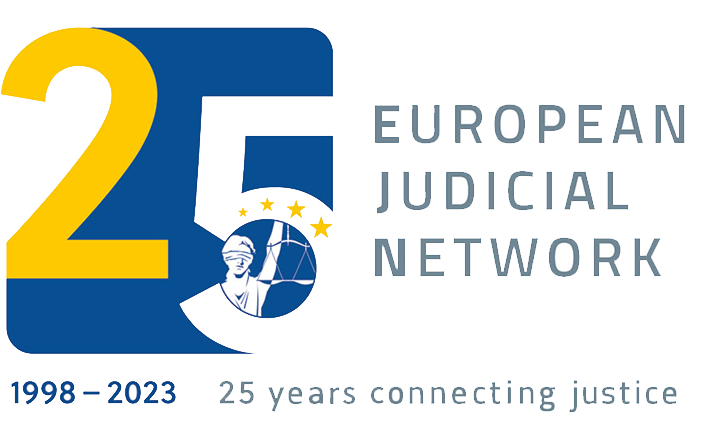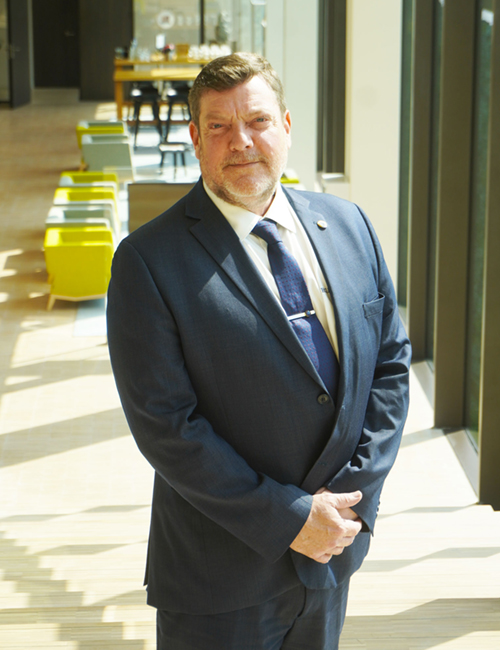 The European Judicial Network (EJN) celebrates its 25th anniversary this year. The anniversary, together with key EU developments in the area of judicial cooperation, will be featured during the EJN plenary meeting in Stockholm being held between the 12th and 14th of June. The EJN assists judges and prosecutors with day-to-day cooperation on criminal justice matters worldwide, via a network of National Contact Points.
The European Judicial Network (EJN) celebrates its 25th anniversary this year. The anniversary, together with key EU developments in the area of judicial cooperation, will be featured during the EJN plenary meeting in Stockholm being held between the 12th and 14th of June. The EJN assists judges and prosecutors with day-to-day cooperation on criminal justice matters worldwide, via a network of National Contact Points.
The EJN has seen the requests for this kind of collaboration rise, with 8 000 new reported cases and approximately 4 million website page views per year. The scope of the EJN meeting will include how to build on this success and improve cooperation in the future.

Mr Per Hedvall, Chairman of the 60th EJN Plenary Meeting under the Swedish Presidency said: I have the honour of chairing the 60th Plenary Meeting of the EJN, an event which marks that, in 25 years, it has become a key player in the field of international judicial cooperation. Its operational approach has proven to be a success. The plenary meetings are essential to create a forum for the Contact Points of the EJN to meet and discuss issues relating to international judicial cooperation. The networking during these meetings lays the foundation for trust and understanding, which is crucial to efficient cooperation.

Mr Hugh Dockry, recently appointed Secretary to the EJN, stated: Since its creation, the European Judicial Network has proven to be a very important instrument to enable concrete cooperation between judges and prosecutors, in order to fight crime, combat impunity and reinforce the Area of Freedom, Security and Justice. From my experience as an expert in judicial cooperation in criminal matters and a practitioner in Ireland, I can tell how valuable establishing ties with fellow prosecutors and exchanging information via the EJN is. Since taking up my new role as Secretary, I am looking forward to building on this cooperation and enhancing it in the future, in close collaboration with colleagues at Eurojust.
The EJN was set up in June 1998 by the Council of the European Union to assist judicial practitioners in combating cross-border crime. Its main purpose is to facilitate requests for practical and bilateral direct cooperation between judicial authorities, prosecutors and Ministries of Justice.
The EJN specialises in direct one-to-one contact to resolve legal issues as well as undertaking preparatory work for judicial cooperation. The role of the EJN can be seen as complementary to Eurojust’s and allows national authorities to receive adequate support from either body depending on the specifics of their case. For this reason, the EJN Secretariat is hosted at Eurojust in The Hague.
EJN assistance can, for instance, concern requests on the status of investigations and which authorities are involved or how to establish contacts in other countries. Furthermore, the EJN can assist judges and prosecutors in establishing who is competent to execute requests for European Investigation Orders (EIOs), European Arrest Warrants (EAWs), Freezing Certificates (FC) or Mutual Legal Assistance (MLAs).
This important support enables direct communication between judges and prosecution services, without having to open a case via National Desks or Liaison Prosecutors at Eurojust. This allows them to focus on longer-term and large-scale criminal justice and multilateral cooperation. EJN operates via a network of approximately 450 Contact Points in EU Member States and beyond.
The EJN Contact Points are coordinated via National Correspondents, and its work is supported by a Secretariat and a rotating Presidency Board, which follows the rotation scheme of the Council of the European Union. During the past 10 years, the Contact Points have reported more than 90 000 cases.
The EJN also delivers important contributions to the drafting and implementation of EU legal instruments such as the e-Evidene package. Its website, maintained by the EJN Secretariat, offers practical guidance via its Judicial Atlas of Contact Points and Competent Authorities. The Compendium offers access to forms for EAWs and MLAs in all 24 official languages of the EU, via e-tools designed by practitioners to assist authorities in filling, drafting and sending the requests.
The Judicial Atlas allows authorities to identify the authority that is competent to receive the request depending on the type of assistance, nature of crime and other criteria, determined by the national legislation of the Member States. The majority of the tools and information on the EJN website is publicly available, and is widely used throughout the EU and beyond with visits from more than 100 countries.
Mr Hugh Dockry became Secretary to the EJN in January this year, succeeding Mr Ola Löfgren. He has extensive experience gained from 14 years spent in the Chief State Sollicitor’s Office of Ireland, with ten of those years working on cooperation in judicial matters. He was, in particular, responsible for the execution of incoming EAWs and extradition requests. He later worked in the Criminal Justice Legislation Division of the Department of Justice, drafting and implementing judicial cooperation instruments.
In 2020, he was seconded as a national expert to the Directorate General for Justice of the European Commission, with responsibility for judicial cooperation instruments, with particular responsibility for EAWs, and detention conditions. Prior to his post at the EJN, Mr Dockry was seconded national expert for Ireland at the Justice and Home Affairs directorate of the Legal Service of the European Commission.
